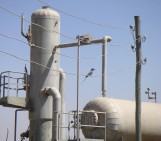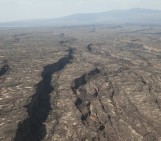Last week, the UK’s Natural Environment Research Council (NERC) launched an over-arching programme in Natural Hazards, a network called PURE (Probability, Uncertainty and Risk in the Environment). This post is a very short attempt to navigate the maze of acronyms of projects that are either linked to PURE, or to other related initiatives in Natural Hazards in the UK.
PURE itself is a network, with funding for four years to support a range of activities in the natural hazards, mainly directed towards knowledge exchange and engagement with industry and policy-makers. PURE includes elements of the RCUK (Research Councils UK) Knowledge Transfer Networks in Financial Services (FSKTN) and Industrial Mathematics (IMKTN).
PURE also includes two major research consortia: RACER (Robust Assessment and Communication of Environmental Risk) and CREDIBLE (Consortium on Risk in the Environment: Diagnostics, Integration, Benchmarking, Learning and Elicitation), neither of which has a website as yet, but I’ll link to those when they are up. The remit of PURE spans the spectrum of (physical) natural hazards ( including floods, extreme weather, tsunami, earthquakes and volcanic activity), while mainly focussing on UK or European case studies.
PURE intersects with another set of large-scale activities which have been jointly funded by the NERC and the Economic and Social Research Council (ESRC), under a programme called Increasing Resilience to Natural Hazards (IRNH). Most of the investment under this programme will be going into two international multi-partner consortia. Earthquakes without Frontiers (EwF) focusses on improving resilience in earthquake-prone regions of the Alpine-Himalayan mountain belt; while STREVA (Strengthening Resilience in Volcanic Areas) is a partnership with volcano observatories and other agencies in the Caribbean, Ecuador and Colombia. I wrote a little about STREVA‘s kick-off meeting on Montserrat in an earlier post. Both EwF and STREVA will shortly be supported by the appointment of two Knowledge Exchange Fellows, whose remits are likely to include bridging the gap between science and policy in natural hazards and risk both overseas, and in the UK. The call for KE Fellows is open until 12 February 2013.
Got that? Do let me know if I have missed anything, and I shall update the post.
Links to information about the RCUK-funded Natural Hazards Consortia and Networks
A portmanteau is type of large suitcase


